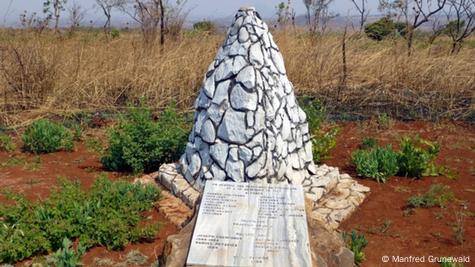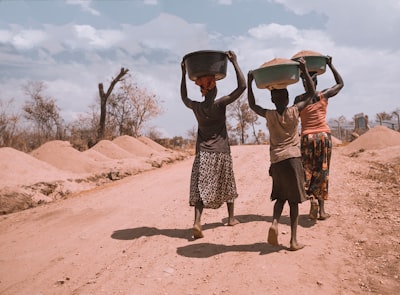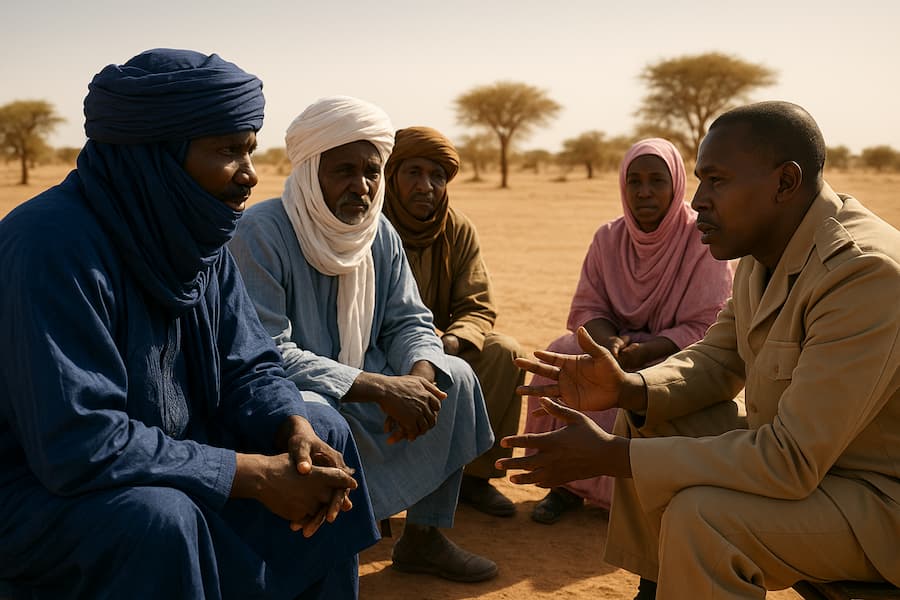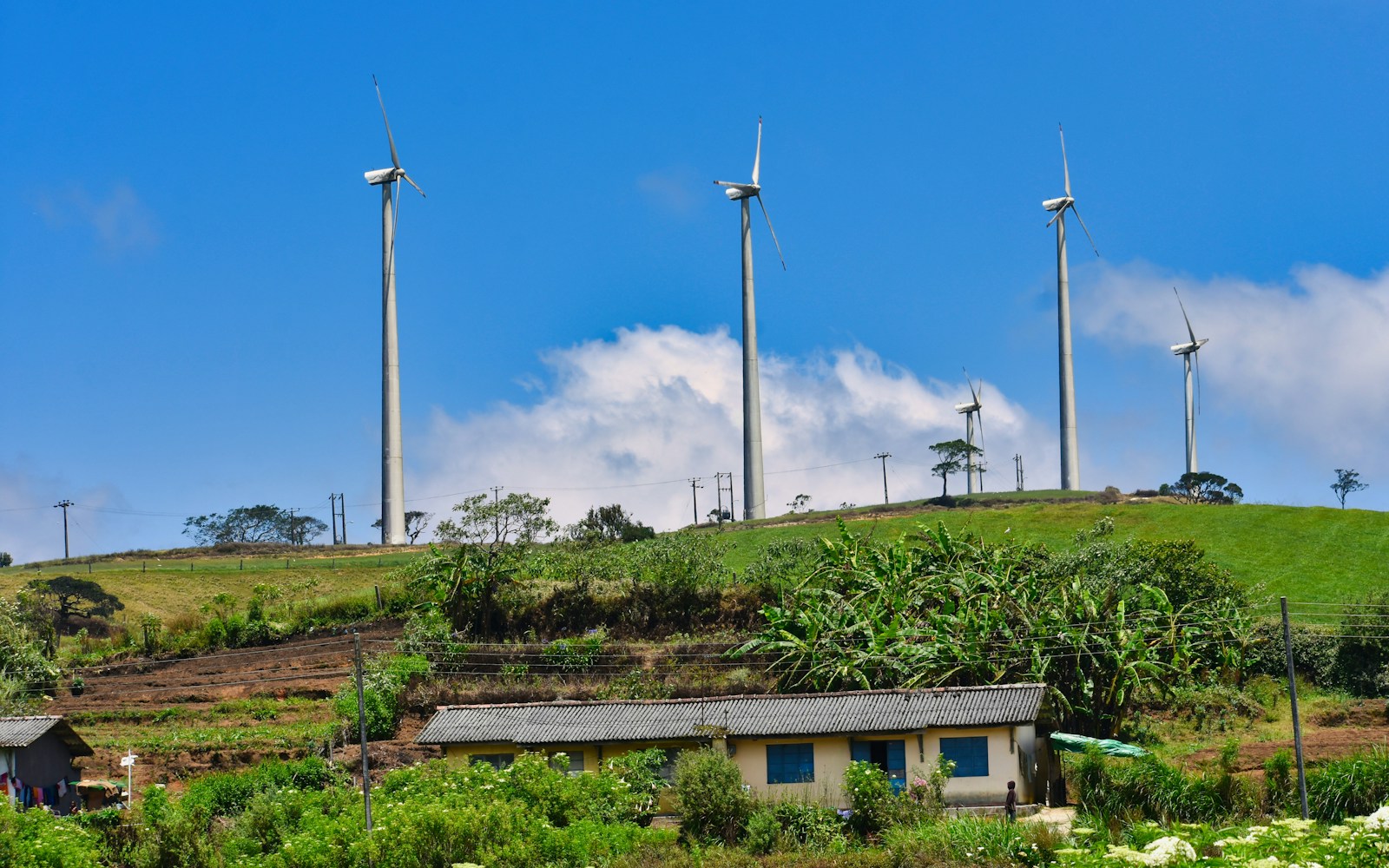What Has Replaced Samora Machel’s Vision in Mozambique? A Complete Reassessment
What Has Replaced Samora Machel’s Vision in Mozambique? A Complete Reassessment
Samora Moisés Machel (1933–1986), Mozambique’s first president, embodied the drive for liberation and nation-building following independence in 1975. Born in Gaza province and trained under FRELIMO’s guerrillas, he declared Mozambique a “People’s Democracy” led by workers and peasants:contentReference[oaicite:1]{index=1}. His charisma, deeply rooted in Marxist-Leninist ideals, launched ambitious state-led reforms in land, health, education, and urban housing:contentReference[oaicite:2]{index=2}.
From Independence to Socialist State
On 25 June 1975, at Maputo’s Machava Stadium, Machel affirmed collective freedom from Portuguese and capitalist exploiters while championing the working class:contentReference[oaicite:3]{index=3}. These policies became formalized with FRELIMO’s conversion to Marxist‑Leninism at its Third Congress in 1977:contentReference[oaicite:4]{index=4}.
The new People’s Republic constitution grounded power firmly in FRELIMO, establishing a centrally-planned economy, nationalized services, and no legal recourse for political dissidents—anything perceived as obstructive to “people’s will” was repressed:contentReference[oaicite:5]{index=5}.
A mix of modernization and repression followed: collectivization mandates, nationalizing of health and education in 1975, and sweeping nationalization of housing in 1976:contentReference[oaicite:6]{index=6}. This aggressive state vision, often dismissive of traditional systems, reflected his slogan: “For the nation to live, the tribe must die.”:contentReference[oaicite:7]{index=7}
Civil War and Machel’s Compromises
Violent resistance arose from peasants stung by forced collective policies. RENAMO emerged in 1977, backed by Rhodesia and then apartheid South Africa, triggering devastating civil war:contentReference[oaicite:8]{index=8}. In response, Machel signed the Nkomati Accord on 13 March 1984—promising non-interference in exchange for dismantling ANC support—but it failed to stop South Africa’s funding of insurgents:contentReference[oaicite:9]{index=9}.
Despite initial progress, health, transport, and education projects were disrupted. Machel’s pivot to the West, exemplified by his September 1985 visit to Ronald Reagan, indicated economic desperation:contentReference[oaicite:10]{index=10}. Nonetheless, civil conflict worsened.
The Mysterious Death
On 19 October 1986, Machel’s plane crashed near Mbuzini on the Mozambique–South Africa border. While officially blamed on pilot error, suspicions persist of foul play involving apartheid operatives:contentReference[oaicite:11]{index=11}.
The Collapse of the First Republic
His death ended the era of the People’s Republic. Under successor Chissano, Mozambique adopted neoliberal austerity in 1987, launching the Programa de Reestruturação Económica—opening markets, privatizing industries, and inviting IMF/World Bank structural adjustment programs:contentReference[oaicite:12]{index=12}.
Constitutional reforms in 1990 institutionalized multiparty democracy and civil rights but stripped away socio-economic guarantees. Arbitrary propaganda-driven campaigns like “Operation Production” ceased, ultimately replaced by technocratic austerity rather than equitable welfare:contentReference[oaicite:13]{index=13}.
Officially, the 1992 General Peace Accords ended the civil war—but FRELIMO’s dominance remained unchallenged and insurgencies—especially in Cabo Delgado—persisted:contentReference[oaicite:14]{index=14}. The current $20 billion TotalEnergies LNG megaproject is itself mired in conflict and human-rights concerns:contentReference[oaicite:15]{index=15}.
Neoliberalism and Kleptocracy
The state’s retreat from welfare coincided with rising corruption. FRELIMO elites grew wealthy, and scandals like the “hidden debt” siphoned billions from the treasury—cementing allegations of kleptocracy:contentReference[oaicite:16]{index=16}.
Observers like David Matsinhe argue that FRELIMO’s retreat from nationhood and solidarity reflects a party more intent on maintaining power than delivering public service:contentReference[oaicite:17]{index=17}.
Fragile Democracy and Civic Unrest
Although political pluralism is technically allowed, real democratic freedoms are constrained. Protests, especially over elections in 2024, have been met with lethal force—dozens killed or injured—demonstrating persistent state repression:contentReference[oaicite:18]{index=18}.
Opposition figures like Venâncio Mondlane have called unity-based protests, yet security forces continue to suppress dissent—mirroring the centralized control of the socialist era but without redistributive ideology:contentReference[oaicite:19]{index=19}.
A Legacy of Ethical Governance?
Despite criticism, many still remember Machel as an ethical, humble leader committed to his people’s welfare. Former interior minister José Óscar Monteiro recalls him as “intolerant of corruption and abuses,” a sentiment echoed in Mozambican rap and public discourse:contentReference[oaicite:20]{index=20}.
His moral authority continues to inspire youth-led civic initiatives demanding transparency, participatory governance, and socio-economic justice drawn from his legacy:contentReference[oaicite:21]{index=21}.
The New Mozambique—and What’s Missing
Today, Mozambique is defined by:
- Unbalanced neoliberal economy: heavy reliance on foreign investment, natural gas, and mineral extraction—benefiting elites while neglecting communal services:contentReference[oaicite:22]{index=22}.
- Kleptocratic elite: policy-making dependent on insider deals; corruption erodes public trust:contentReference[oaicite:23]{index=23}.
- Fragile democracy: democracy in form, but regular forceful suppression and contested elections hinder genuine participation:contentReference[oaicite:24]{index=24}.
- Regional instability: armed resistance in Cabo Delgado and socio-economic neglect in rural areas perpetuate unrest:contentReference[oaicite:25]{index=25}.
Can Machel’s Dream Be Revived?
Reconnecting with Machel means more than nostalgia—it requires structural reform:
- Reinvesting in public services: quality education, healthcare, rural water, and transport infrastructure.
- Anti-corruption mechanisms: transparency, oversight, and punishment for elite embezzlement.
- Youth empowerment: civic education, inclusive policymaking, participatory budgeting.
- Constitutional enforcement: socio-economic rights alongside civil liberties, not just aspirational rhetoric.
- Resource justice: gas and extractive projects must prioritize local communities, environmental safeguards, and shared benefit.
Conclusion
Samora Machel’s founding vision—a united, just, independent Mozambique—was dismantled after his death and replaced by a hollow neoliberal state dominated by corrupt elites. But his memory remains powerful. Restoring his ethos isn’t impossible—it’s a national imperative. The challenge for Mozambicans today is to build a democracy that blends moral integrity with institutional accountability—so the nation’s own anthem, A luta continua, can truly ring out in national reconstruction.
Internal & External Links
Internal: History of Mozambique | FRELIMO party | Cabo Delgado crisis | Mozambican economy post-independence
External: Wikipedia: Samora Machel | Wikipedia: Economic Restructuring Program | Wikipedia: Nkomati Accord
Image caption: Portraits and historical scenes of Samora Machel—liberator, state-builder, and enduring symbol of Mozambique’s unfulfilled aspirations.
What Has Replaced Samora Machel’s Vision in Mozambique? A Verified Reassessment
What Has Replaced Samora Machel’s Vision in Mozambique? A Verified Reassessment

Samora Moisés Machel (29 September 1933 – 19 October 1986) served as Mozambique’s first post-independence president from 25 June 1975 until his death in a plane crash near Mbuzini, South Africa :contentReference[oaicite:1]{index=1}. A socialist revolutionary in the Marxist‑Leninist tradition, he led FRELIMO and boldly reshaped the nation’s institutions, land policies and services :contentReference[oaicite:2]{index=2}.
From Liberation to One‑Party Socialist State
Following independence declared on 25 June 1975, Machel pursued sweeping reforms: nationalization of health, education, housing, and collectivization of agriculture. In 1977, FRELIMO formally adopted Marxism‑Leninism at its Third Congress, cementing one‑party rule :contentReference[oaicite:3]{index=3}.
The Nkomati Accord and Civil War
RENAMO, forming in 1977 and backed by Rhodesia and apartheid South Africa, sparked a brutal civil war killing hundreds of thousands and displacing millions by the late 1980s :contentReference[oaicite:4]{index=4}. In March 1984, under pressure, Mozambique signed the Nkomati Accord with South Africa—pledging not to host the ANC, while South Africa agreed to stop supporting RENAMO. In practice, South Africa violated the agreement, continuing RENAMO support, and the accord collapsed :contentReference[oaicite:5]{index=5}.
The 1986 Plane Crash
On 19 October 1986, Machel’s Tupolev Tu‑134 crashed at Mbuzini. Of 44 onboard, only ten survived; Machel was killed instantly. Official inquiries blamed pilot error or mis-set navigation equipment; rumors of sabotage by apartheid forces remain unproven :contentReference[oaicite:6]{index=6}.
Post‑Machel Era: Economic Reforms & Hidden Debt
President Joaquim Chissano initiated economic liberalization by 1987 via Mozambique’s Economic Restructuring Program, embracing IMF/World Bank–backed structural adjustments and privatization, ending the welfare state Machel had envisioned :contentReference[oaicite:7]{index=7}.
The 1990 constitution legalized multiparty democracy and civil liberties, but largely omitted socio‑economic rights. “Operation Production,” a forced relocation program, ended—but was replaced with austerity rather than equitable social services :contentReference[oaicite:8]{index=8}.
In 2016, Mozambique’s hidden debt scandal emerged: $2 billion in secret loans guaranteed illegally, siphoned off via three state firms. The crisis triggered donor withdrawal, currency collapse, and economic hardship, cost estimates topping $11 billion—some 12% of GDP—and pushed nearly 2 million people into poverty :contentReference[oaicite:9]{index=9}.
Former finance minister Manuel Chang was convicted in the U.S. and sentenced to around eight years for fraud and money laundering related to the scheme :contentReference[oaicite:10]{index=10}. Courts in Mozambique also convicted intelligence chiefs and officials, sentencing several to 10–12 years and ordering restitution of $2.2 billion :contentReference[oaicite:11]{index=11}. In the UK High Court, Mozambique won a judgment against shipbuilder Privinvest for over $825 million and indemnity of $1.5 billion; Privinvest’s appeal was denied :contentReference[oaicite:12]{index=12}.
Neoliberal Kleptocracy and Resource Projects
Mozambique today relies heavily on natural gas export projects such as TotalEnergies’ $20 billion LNG venture. However, construction has been halted due to violence in Cabo Delgado, with reinvestment threatened by insecurity and corruption concerns :contentReference[oaicite:13]{index=13}.
Fraud cases linked to the hidden debt scandal and credit breaches eroded public trust. Neoliberal policies enriched FRELIMO elites while public welfare deteriorated—a reality far removed from Machel’s egalitarian ideals :contentReference[oaicite:14]{index=14}.
Today: Fragile Democracy and Civic Dissent
Although formal multiparty elections exist, real democracy is fragile. Opposition protests, particularly around the 2024 elections, have been met with repression, echoing central control of Machel’s era but without redistributive policies :contentReference[oaicite:15]{index=15}.
Youth movements and civil society protest corruption, inequality and demand inclusive governance. The memory of Machel—who was viewed by allies like former interior minister José Óscar Monteiro as intolerant of corruption—remains invoked as moral counterpoint today :contentReference[oaicite:16]{index=16}.
What Replaced His Vision?
- Neoliberal capitalism: opening to foreign investment, gas extraction, structural adjustment replacing public service provision.
- Elite kleptocracy: large-scale corruption and patronage networks leveraged public contracts, deepening inequality and undermining state capacity.
- Token democracy: limited political freedoms, contested elections, and suppression of dissent.
- Regional instability: conflict in Cabo Delgado and central provinces, resource-related violence and displacement.
Could Machel’s Ideals Be Revived?
Revitalizing Machel’s legacy requires serious reform:
- Investing in public infrastructure: healthcare, education, rural services;
- Implementing anti-corruption institutions and transparent governance;
- Empowering youth through participatory policymaking;
- Re-establishing socio-economic rights in law;
- Ensuring equitable resource-sharing and environmental justice in energy and extractive industries.
Conclusion
Samora Machel’s founding vision of national unity, social justice, and independence did not endure. After his death, a neoliberal kleptocracy overshadowed welfare ideals. Yet his moral authority and populist legacy persist. Fulfilling his vision remains a monumental national challenge—and opportunity—for Mozambique’s institutions and citizens.
Links
Internal links: History of Mozambique | FRELIMO party | Economy post-independence | Cabo Delgado crisis
External links: Wikipedia: Samora Machel | Wikipedia: Nkomati Accord | Tuna Bonds / Hidden Debt Scandal
Samora Machel’s Legacy: What Has Replaced His Vision in Mozambique?
The Legacy of Samora Machel: What Replaced His Vision in Mozambique?

Samora Machel was a revolutionary leader who dreamed of an independent, fair, and united Mozambique. His life, tragically cut short in a plane crash in 1986, marked the end of an era that aimed to place justice and equality at the core of national identity.
Born in 1933 in Gaza province, Samora led Mozambique through its post-colonial transition. As a Marxist-Leninist, he aligned with the Soviet Union and Cuba, believing that only a radical transformation of society could free the country from poverty, illiteracy, and inequality.
But Samora‘s vision was challenged by opposition movements like RENAMO, a civil war, and economic limitations. Still, under Samora‘s leadership, Mozambique made notable progress in education, healthcare, and national identity formation.
Samora Machel’s Political and Ethical Legacy
More than just a head of state, Samora Machel was a symbol of moral integrity. He died with little personal wealth and left behind a legacy rooted in ethical governance and national dignity. His approach to leadership was admired by peers like Fidel Castro, and continues to be remembered by many Mozambicans today.
The Fall of Socialist Ideals
After Samora‘s death, the country gradually abandoned socialism. FRELIMO embraced free-market reforms and structural adjustment programs that eroded the foundations of the welfare state that Samora built. This shift led to growing inequality and systemic corruption.
The infamous hidden debt scandal that surfaced in 2016 is a painful example of this corruption. Billions of dollars in secret loans plunged Mozambique into an economic crisis, a far cry from Samora‘s dream of transparency and justice.
Samora in Memory and Modern Culture
In today’s Mozambique, Samora‘s name still resonates. His speeches are quoted, and artists continue to honor him in music and literature. Many citizens refer to him when criticizing current political failures, yearning for a return to leadership grounded in values and purpose.
Conclusion: Reclaiming the Vision of Samora
Samora Machel’s dream has not entirely disappeared—it lives on in the hopes of young Mozambicans and in civic movements demanding transparency and fairness. Rebuilding his vision would mean prioritizing the people once again: investing in education, healthcare, and ethical leadership.
In a time where corruption and inequality dominate, the legacy of Samora offers a moral compass. His vision of unity, dignity, and justice remains a relevant foundation for Mozambique’s future.
Relevant Links
Internal: History of Mozambique | FRELIMO Party Overview | Post-Independence Economy
External: Wikipedia: Samora Machel | DW: Hidden Debt Trial | BBC: Samora’s Influence
Samora Machel’s Legacy: What Replaced His Vision in Mozambique?
The Legacy of Samora Machel: What Replaced His Vision in Mozambique?

Samora Machel was a revolutionary leader who dreamed of an independent, fair, and united Mozambique. His life, tragically cut short in a plane crash in 1986, marked the end of an era that aimed to place justice and equality at the core of national identity.
Born in 1933 in Gaza province, Samora led Mozambique through its post-colonial transition. As a Marxist-Leninist, he aligned with the Soviet Union and Cuba, believing that only a radical transformation of society could free the country from poverty, illiteracy, and inequality.
But Samora‘s vision was challenged by opposition movements like RENAMO, a civil war, and economic limitations. Still, under Samora‘s leadership, Mozambique made notable progress in education, healthcare, and national identity formation.
Samora Machel’s Political and Ethical Legacy
More than just a head of state, Samora Machel was a symbol of moral integrity. He died with little personal wealth and left behind a legacy rooted in ethical governance and national dignity. His approach to leadership was admired by peers like Fidel Castro, and continues to be remembered by many Mozambicans today.
The Fall of Socialist Ideals
After Samora‘s death, the country gradually abandoned socialism. FRELIMO embraced free-market reforms and structural adjustment programs that eroded the foundations of the welfare state that Samora built. This shift led to growing inequality and systemic corruption.
The infamous hidden debt scandal that surfaced in 2016 is a painful example of this corruption. Billions of dollars in secret loans plunged Mozambique into an economic crisis, a far cry from Samora‘s dream of transparency and justice.
Samora in Memory and Modern Culture
In today’s Mozambique, Samora‘s name still resonates. His speeches are quoted, and artists continue to honor him in music and literature. Many citizens refer to him when criticizing current political failures, yearning for a return to leadership grounded in values and purpose.
Conclusion: Reclaiming the Vision of Samora
Samora Machel’s dream has not entirely disappeared—it lives on in the hopes of young Mozambicans and in civic movements demanding transparency and fairness. Rebuilding his vision would mean prioritizing the people once again: investing in education, healthcare, and ethical leadership.
In a time where corruption and inequality dominate, the legacy of Samora offers a moral compass. His vision of unity, dignity, and justice remains a relevant foundation for Mozambique’s future.
Relevant Links
Internal: History of Mozambique | FRELIMO Party Overview | Post-Independence Economy
External: Wikipedia: Samora Machel | DW: Hidden Debt Trial | BBC: Samora’s Influence




